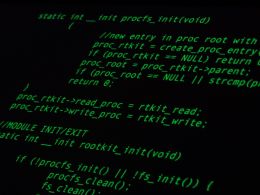
Computer Virus Wreaks Havoc in Italian Administrations, Ransom Paid in Bitcoin
The computer systems of tens of local administrations in Italy have fallen to a "ransomware" computer virus that encrypts stored files and requests payment in Bitcoin for the decryption keys. The ransom is 400 Euros, and it doubles after three days. Also read: Surge in Ransomware Likely Due to Bitcoin. Administration officers at Bussoleno, a small town in Northern Italy, could only recover important files by acquiring Bitcoin and paying the ransom. According to a story posted to Reddit, this is the first time a nation state is forced to acquire Bitcoin. That is not entirely true, since the....
Related News
Cyber criminals attacking businesses for bitcoin has spread from the West to the Far East, as new attacks are being reported by some of the world's top Asian banks. The Bank of China and the Bank of East Asia have been attacked in recent days by hackers looking for Bitcoin ransom, according to Hong Kong's The Standard news feed. These hackers have damaged the bank's websites, and they are believed to not be domestic but foreign criminals. Cyber Criminals Say Attacks Will Continue. The attackers claim to want bitcoin as ransom, and will resume the digital damage unless they get what they....
Over the past few months, computer systems have failed at airports and airline companies on several occasions. The latest incident, which saw the US Customs and Border Protection processing systems experience a 90-minute outage, was another clear example of why technological innovation is needed. So far, the disruption doesn’t seem to be of malicious intent, but it’s an option that can’t be ruled out either. Airports and airline companies are commonly used by everyday consumers, as they need to travel, attend business meetings, and whatnot. To make the entire flying experience more smooth,....
Many Australians and New Zealanders woke up this morning to find their iOS, or Apple device had a new message: "Device hacked by Oleg Pliss. For unlock device... upon pressing the OK button, they receive a further message demanding a ransom of between $50 and $100 to unlock the device. There are no reports, currently emerging, from outside of Australia and New Zealand, but many believe that this virus spreading, is little more than a matter of time. Many apple users believe that their devices are de-facto immune from cyber attacks. Ryan W. Neal, writing in The International Business Times....
A trojan called CoinThief is stealing tens of thousands of dollars worth of BTC from unsuspecting Mac users. Contrary to popular belief, Macs do in fact get viruses. It's just that 91% of the world uses Windows while only 7% of the world uses OSX (The remaining percentage uses Linux). As such, virus makers have more incentive to create malware for Windows, because it simply makes sense to target the majority of computer users. This is generally great news for Mac users, since they remain virtually virus free. However, it can make them pretty complacent about security, and when a Mac virus....
A Canadian university has paid bitcoin to malicious hackers to restore its computer systems after it became the subject of a cyberattack that denied access to its data. The University of Calgary paid a ransom amounting to $20,000 Canadian dollars worth of bitcoins in order to obtain the keys or methods of decryption to restore its data. Linda Dalgetty, the school’s vice-president of finances and services, said in a message released on the UT website that the cyberattack, which crippled multiple systems on May 28, used ransomware, which locks or encrypts computer networks until a ransom is....





